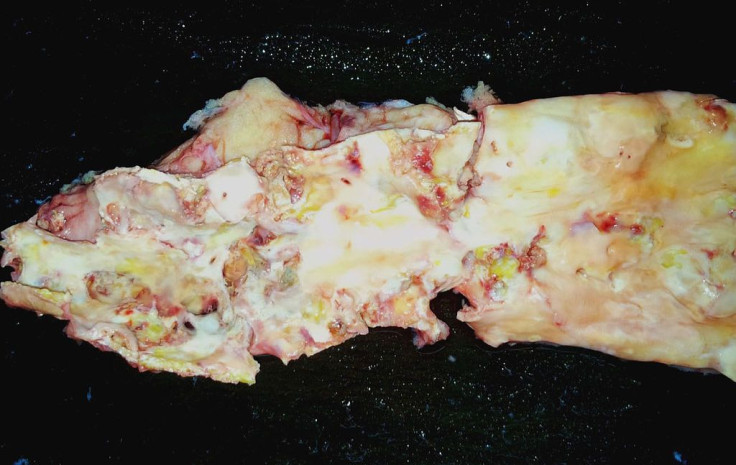Heart Attack News: Soft Plaque Build-Up May Not Be Culprit

A study presented at the American College of Cardiology meeting in Washington indicates measuring a patient’s coronary calcium levels is a much better predictor of heart attack than soft plaque buildup in the arteries.
The study by the Intermountain Medical Center Heart Institute in Salt Lake City presented Saturday indicated it’s the harder, calcified plaque that is more closely associated with heart attacks than soft plaque.
Coronary calcium build-up cannot be reversed but patients can be treated with statins for atherosclerosis — a hardening and narrowing of the arteries.
Read: Study Reveals The Surprising Factor That Predicts Heart Attack
The study followed patients for an average seven years. The composition of coronary artery plaque was analyzed through CT coronary angiography, separating out soft, calcified and fibrous plaque. The study found those with greater amounts of calcified plaque were more likely to have heart attacks.
"It's a disease marker, not a risk marker. And we think it's possibly a very important predictor," said Dr. Brent Muhlestein, one of the study's authors and co-director of cardiology research at the Intermountain.
Read: Extreme Emotion, Physical Exertion Don’t Mix
He told Medical Express a calcium score of zero is almost a guarantee against a heart attack, no matter a person’s cholesterol reading.
"The finding potentially could mean a lot of patients may not require statin therapy, even though they have high cholesterol," he said. "Maybe we can find and identify them. If there's no atherosclerosis, you're not going to have a heart attack. So the coronary calcium score may allow us to much more effectively select who we treat."
Currently, doctors prescribe statins for high cholesterol. The drugs control low-density lipoprotein — LDL, the so-called bad cholesterol — and can boos high-density lipoprotein — HDL, the so-called good cholesterol. Cholesterol also can be controlled with diet and exercise, and losing weight has the greatest impact.
Statins, the most-prescribed class of drugs, are thought to reduce the chances of both heart attack and stroke but can cause headache, gastro-intestinal problems and muscle and joint aches. In some cases they cause memory loss, mental confusion, high blood sugar and type 2 diabetes, and can even lead to muscle or liver damage.
About 610,000 people die of heart attacks and 140,000 die of stroke in the U.S. annually, according to the Centers for Disease Control and Prevention and the Internet Stroke Center, respectively.
© Copyright IBTimes 2024. All rights reserved.






















